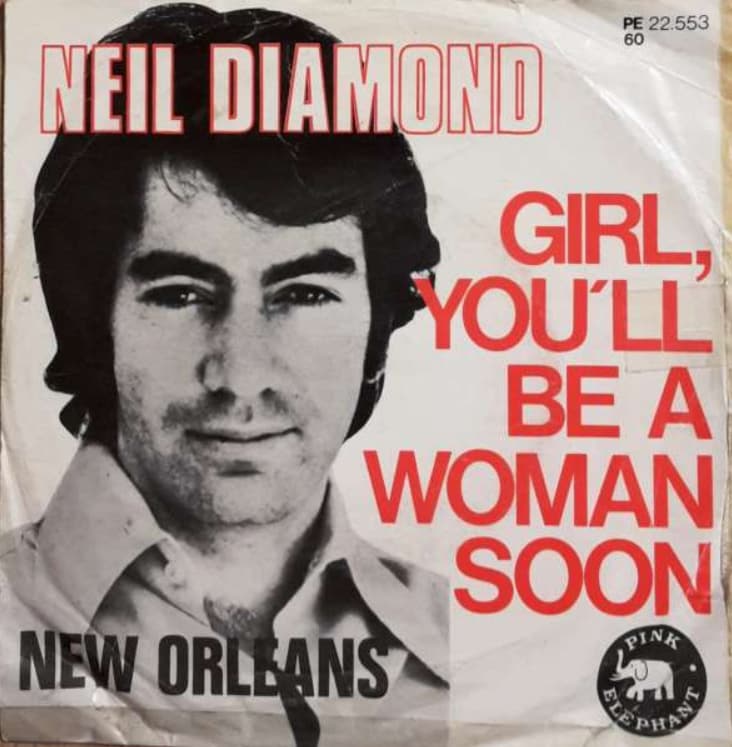
Neil Diamond’s Timeless Hit: “Girl, You’ll Be a Woman Soon”
When Neil Diamond first penned “Girl, You’ll Be a Woman Soon,” little could he have anticipated the song’s enduring appeal and the multi-generational journey it would embark upon. Initially featured on Diamond’s 1967 album Just for You, the song emerged as a definitive track of the era, reaching number 10 on the US pop singles chart. Not only did it encapsulate the musical ethos of the late 60s, but it also marked a significant moment in Diamond’s burgeoning career.
The song’s composition exhibits a careful blend of simplicity and depth. The contrasting versions—mono and stereo—offer subtle yet intriguing differences: the mono version, found on the original LP and 45, introduces the strings only in the second verse, adding a sense of anticipation and gradual build-up that was somewhat typical of the era’s musical arrangements. Conversely, the stereo version presents an earlier entrance of the strings in the first chorus and a shorter fade, providing a more immediate emotional impact.
Lyrically, “Girl, You’ll Be a Woman Soon” paints a narrative of romantic yearning and societal defiance. Diamond’s lyrics voice the thoughts of a man viewed with skepticism by the family and friends of the young woman he loves. They are quick to judge him (“They never get tired of putting me down”), but he implores the woman to form her own opinions (“Don’t let them make up your mind”). This theme of personal independence against external pressures resonated deeply with listeners, perhaps contributing to the song’s chart success.
Critical reception at the time highlighted the track’s potential. Billboard called it a “sure-fire chart topper,” praising its “soulful reading of a compelling lyric” set against an “easy rhythm.” Cash Box echoed this sentiment, describing the song as a “rhythmic, mid-tempo ballad” poised for significant Top 40 radio play. These reviews underscored the song’s alignment with contemporary musical trends while also hinting at its timeless appeal.
The track’s revival in the 1994 film Pulp Fiction, performed by rock band Urge Overkill, introduced it to a new generation, reaffirming its status not just as a pop song but as a cultural touchstone. This cover, alongside other versions by artists like Cliff Richard, Jackie Edwards, the Biddu Orchestra, and 16 Volt, illustrates the song’s versatility and its wide-reaching influence across different music styles and eras.
As we look back on the song’s journey from its 1967 roots to its cinematic rebirth in the 90s and beyond, “Girl, You’ll Be a Woman Soon” stands as a testament to Neil Diamond‘s ability to craft songs that transcend time and genre. This track not only showcased his lyrical finesse and melodic skill but also affirmed his place as a pivotal figure in American music history.